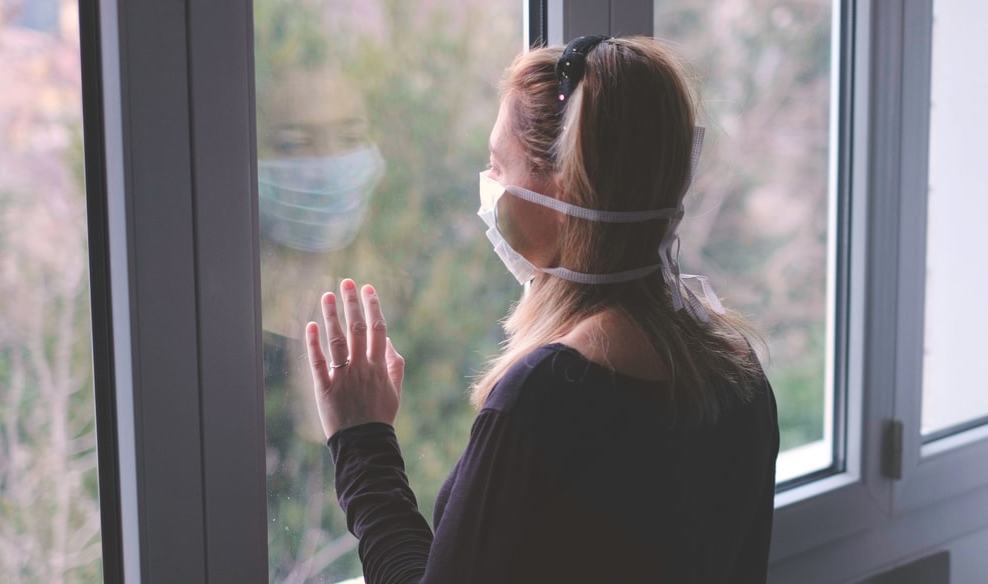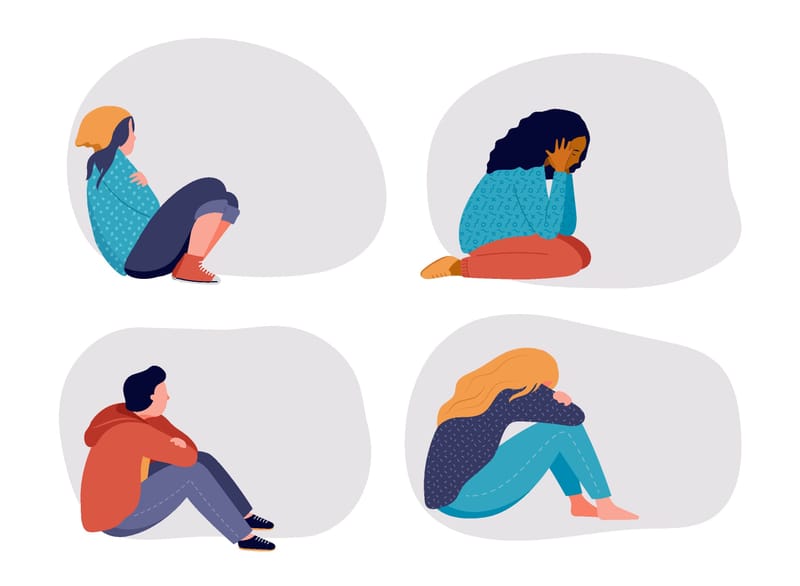
We are living in the increasingly uncertain and frightening time of a global pandemic; one that, during the coming months, will almost certainly see Australian households and individuals experience higher levels of stress and financial uncertainty, and health threats previously unimaginable.
More than ever during this time, we must not forget that family violence remains a national emergency and a major public health concern in Australia.
As yet there's been limited consideration given to how the coronavirus will affect family violence rates in Australia, but evidence from the aftermath of other state and federal crises, such as the recent bushfires and other natural disasters, suggest a spike is looming.
As measures to curb the spread of the disease tighten, such as families being confined in their homes, that threat is expected to increase, with women and children being at greatest risk of harm.
The Australian federal and state governments must devote immediate resources to ensure their safety during and post the crisis.
The stress and financial impacts on families
Financial stress arising from a change in employment and income has been recognised as a precursor to family violence, femicide and filicide. This is particularly critical in the rapidly changing context of the coronavirus pandemic, which will see many families affected by a reduction or loss of income.
While this will affect households across the board, low-income families and those with insecure employment arrangements will be disproportionately affected by financial stress.
The risks of social isolation
As self-isolation becomes the recommended but temporary way of life, it's important to recognise that for a large number of Australian women and children this poses significant health and safety risks.
In a country where one woman a week dies from male violence, and where one child a fortnight is killed by a parent, we cannot underestimate the combined risks of social isolation, financial stress and family violence during this pandemic.
Read more: What are the laws mandating self-isolation, and how will they be enforced?
For some women and children, safely isolating at home will simply not be an option.
Residing with elderly parents, family or friends, on the other hand, presents a different set of heightened health risks. Homelessness will become a fear and a reality for some.
We know that family violence is already the leading cause of homelessness for women in Australia, and it's a fear that has created substantial barriers to them seeking help to leave an abusive relationship.
This coronavirus global health pandemic presents a new barrier to exiting abusive relationships, and increases the risk of pushing many Australian women and children to remain in violent and unsafe homes.
Federal and state governments must move now to prepare for an increased demand for safe housing options for women and children experiencing family violence, along with adequate resourcing of telephone helplines in times of increased isolation. Women and children should not be forced to choose between their personal safety, housing stability, and the health risk that coronavirus poses.
The impact on children and shared care arrangements
There are also risks unique to children and families navigating shared care arrangements and ongoing family violence.
Research evidence has repeatedly highlighted perpetrators’ strategic use of children and child contact arrangements to exercise ongoing abuse and control over the non-abusive parent post-separation.
While we don't underestimate the dire global health and financial crisis that has emerged, the lives of Australian women and children will be at a uniquely higher risk during this period.
The rapidly changing preventative and reactive measures considered by state and federal governments to manage the spread of coronavirus, including self-isolation and potential community shutdowns, will offer a welcome tool for perpetrators of family violence to further manipulate, control and terrorise women and children who are subject to shared care arrangements.
Federal and state governments need to ensure access to free legal advice and facilitate the safe returns of children to the non-abusive parent in the event of community shutdowns to minimise the trauma experienced by children who would otherwise be forced to spend extended periods of time with the abusive parent.
The need to adapt service system responses
It's essential that family violence specialist services (men’s services, community legal services and other relevant support services), are sufficiently resourced to ensure they are accessible and available remotely during this period. This will require some innovation, including new service delivery and design, as well as funding to resource the sector to work remotely, and to respond to what is likely to be a peak in service need.
The merits of different service delivery models should be explored with the needs of diverse community groups in mind. Lessons can likely be taken from models used to deliver support services to those living in remote and rural communities.
What our federal and state governments must do
We call on the federal and state governments to commit additional resources to ensure the safety of victim survivors, including children, during this time.
Specifically, we call for a commitment to:
- provide additional secure housing options for women and children experiencing family violence
- resource the specialist family violence sector, including men’s and mental health services, to adapt their delivery models to be remotely accessible and to meet a likely heightened demand
- resource police services to be adequately equipped to maintain visibility of high-risk perpetrators and families during periods of isolation
- increase funding of 1800 Respect, the national sexual assault, domestic and family violence counselling, information and referrals telephone service to meet increased demand
- increase funding of community legal services to meet the demand of shared-care related inquiries to minimise the risk of children being isolated with an abusive parent
- ensure police are resourced and prepared to facilitate the safe return of children subject to shared care arrangements to the non-abusive parent, to minimise the impact of child trauma associated with extended exposure to an abusive parent during self-isolation or community shutdowns.
While we don't underestimate the dire global health and financial crisis that has emerged, the lives of Australian women and children will be at a uniquely higher risk during this period.
Not only do they face the health risk posed by COVID-19, but a significant number will also face an increased risk of violence in the home.
Silke Meyer was the Deputy Director, Gender and Family Violence Prevention Centre, Associate Professor (Research), Criminology at Monash University at the time of writing this article.





